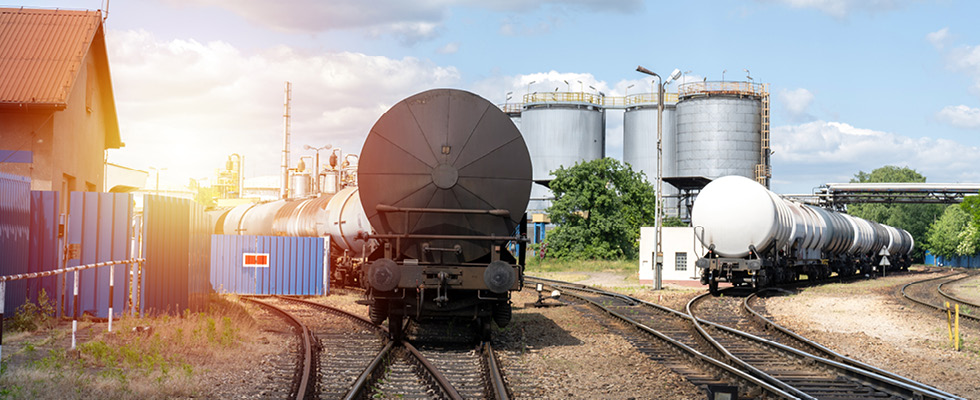
In August of this year, the propane industry received some great news — the anticipated Canadian railway standoff had been successfully averted, and in the nick of time.
Canadian National Railway and Canadian Pacific Kansas City are two major railways in Canada, of vital importance to the transport of resources. Contract negotiations between the railways and their unions fell through after months of work, resulting in an expected lockout at midnight on Aug. 22 and an anticipatory embargo on propane and other hazardous materials starting on Aug. 15.
According to an official news release from the National Propane Gas Association (NPGA) at the time, “These embargoes are expected to have a ripple effect on U.S. supply, first at locations supplied by Canadian origin rail and secondly via increased demand on U.S.-based supply origins. Marketers are anticipated to seek supplies in the U.S. when they are not able to access product in Canada. About 7% (rail and pipeline combined) of the U.S. propane supply is imported from Canada.”
With a potentially disastrous situation on the horizon, entities like the Canadian Propane Association (CPA) stepped forward to help emphasize the importance of the timely and efficient transport of propane to consumers, including hospitals in need of reliable energy supply and farmers who rely on propane for crop drying season.
In the end, efforts like the above achieved success when Canadian Labour Minister Steven MacKinnon intervened on the deadline of the lockout. According to an additional news release from NPGA, MacKinnon “invoked powers under Section 107 of the Canada Labour Code to intervene in the dispute that brought Canada’s two largest railways to a standstill. The Ministry has imposed binding arbitration and will extend rail contracts in the meantime.”
In situations such as this, it’s important to highlight the behind-the-scenes efforts that contribute to a positive outcome for the propane industry. Ahead, Shannon Watt, CPA president and CEO, answers a few questions to give more insights on how the CPA worked with officials on this rail standoff and what it meant for propane supply on a global scale.
Can you describe how the CPA was involved in discussions to help circumvent the issue?
In response to the potential of a strike that was announced in May 2024, the CPA wrote to then federal Labour Minister Seamus O’Regan to express serious concerns regarding a potential railway stoppage and the impact on thousands of Canadians who depend on propane daily for their homes, businesses, farms and fleets.
The CPA wrote that, “The timely delivery of affordable and low-emission propane is essential to the health and safety of individuals across Canada, with community hospitals, senior facilities, food production, emergency measures services and schools depending on propane.”
To support this claim, the CPA cited several examples demonstrating propane’s vital role in communities throughout Canada. The CPA worked with members to gather examples, data and information about the rail system impacts stemming from the strike. This information was critical for effective advocacy efforts.
Consequently, the federal government requested the Canada Industrial Relations Board evaluate whether “the transportation of propane is necessary to prevent an immediate and serious danger to the safety or health of the public.” The board ultimately ruled that railways are not an essential service.
Can you also describe why it was important for the CPA to be involved and place priority on this issue?
Propane is a vital energy source for millions of Canadians, powering homes, businesses, farms and fleets nationwide. About 300,000 Canadians depend on propane daily as their primary heating fuel, and many industries and businesses — including community hospitals, senior facilities, schools and emergency services — rely on propane for their operations.
Autumn is also a crucial season for farmers who depend on the essential steady supply of propane for grain and crop drying, greenhouse production, as well as the heating and cooling of livestock barns.
Any rail disruptions have a substantial and significant impact on the propane sector, as about 75% of our domestic propane supply is shipped via rail. According to product movement by rail within Canada, each day of delayed propane delivery results in a sales loss of $9.82 million. Impacts to the supply chain also have global [repercussions]. Canada’s global trading partners — including the United States, Japan, South Korea, Mexico and China — rely on Canadian propane, as about 60% of Canadian propane is exported from our borders.
The propane industry has faced major challenges in the past due to railway work stoppages. The 2019 CN rail strike serves as a stark reminder of the need to ensure that critical energy supplies like propane can be reliably delivered, even amid transportation challenges. During that strike, severe difficulties were encountered in Ontario, Quebec and Atlantic Canada, where propane is heavily relied upon for heating. Farmers also faced considerable challenges in securing propane for crop drying.
How did propane companies respond to/prep for the supply disruptions?
Since learning about the potential strike earlier this year, propane companies promptly began optimizing their operations by increasing storage levels across the country and preparing contingency plans to minimize impacts to customers stemming from any transportation disruptions.
Customers are at the heart of the propane industry, and ensuring they receive their propane is the industry’s top priority. CPA members will always strive to overcome logistical challenges to ensure timely delivery and reliable service for their customers.
Anything else you’d like to add that hasn’t been addressed here?
The CPA will continue engaging with federal and provincial governments, Class 1 carriers and key stakeholders to relay the importance of propane across the country, minimize any further disruptions, and focus on creating a robust and reliable supply chain system via rail.


